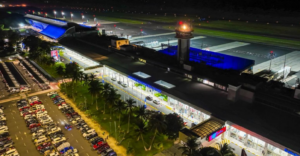The Legislative Assembly of El Salvador has taken a significant step by approving a new regulatory framework designed to attract international investment and talent. The legislation, approved with 57 votes, establishes a special tax regime aimed at encouraging the establishment of companies and the hiring of technical personnel, both national and foreign.
The new legal framework seeks to reduce tax barriers to the hiring of specialized personnel, a crucial factor for the development of the national economy. This is the Special Regime to Facilitate and Promote the Establishment of Technical and Administrative Capacity, a measure that equalizes Income Tax withholding amounts.

As explained by representative Edgardo Mulato, this legislation will apply a 10% withholding tax on monthly income up to US$100,000. If income exceeds this amount, the withholding will be applied only to the first US$100,000, which will incentivize high-paid professionals to work in the country.

The tax regime not only seeks to attract capital but also to promote the transfer of knowledge and technology. The goal is to complement and strengthen national talent through the hiring of international experts. This approach aims to promote the development of technical capabilities in El Salvador.
The initiative positions El Salvador as a more competitive country internationally by creating favorable conditions to attract investors. The purpose is to stimulate the economy through strategic investments, demonstrating the government’s commitment to sustainable growth and modernization.

Law approved to support household goods of up to US$100,000 for salvadorans returning to the country
The Legislative Assembly also approved, with 60 votes, the Special Law on Benefits and Protection for the Diaspora and People in Human Mobility. This legislation seeks to encourage the return of Salvadorans residing abroad, offering economic and social incentives for them to resettle in the country.
Representative Raúl Chamagua affirmed that the law is an act of justice for the diaspora, which has historically been seen only as a source of remittances. This new legal framework, along with voting abroad, is another instrument to strengthen democracy and recognize compatriots as an active part of national development.

The new law also repeals the Special Transitory Law on Incentives and Preferential Treatment, which only granted tax benefits of up to US$70,000 on household goods. Under the new regulations, returning salvadorans will be able to import household goods valued at up to US$100,000, tax-free, a measure that puts the country on par with nations such as Ecuador and Colombia in this type of benefit.
To access these benefits, salvadorans must submit a sworn declaration to the National Directorate of Immigration and Foreigners, stating their new address. Additionally, they will have to update their Documento Único de Identidad (DUI), and those with immigration alerts or arrest warrants will be excluded.
With these two pieces of legislation, El Salvador is taking concrete steps to strengthen its economy, attract investment, and reintegrate the diaspora. The goal is to create a favorable environment for the country’s development, both in terms of capital and human talent.







